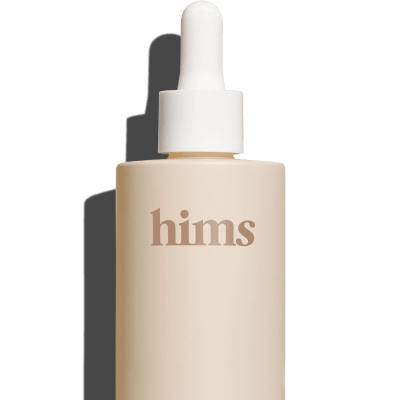Content
Over 90% of users saw increased regrowth or reduced hair loss in clinical trials
Finasteride Interactions Guide

Finasteride Drug Interactions and Adverse Effects
According to FDA.gov (the website of the U.S. Food and Drug Administration), there are no major interactions associated with finasteride, which is approved to treat hair loss as well as an enlarged prostate, a condition referred to as benign prostatic hyperplasia (BPH), under the brand name Proscar. The FDA’s drug information guide for finasteride says that “no drug interactions of clinical importance have been identified.”
The primary concern when using finasteride alongside other medications is accidentally causing unusually high concentrations of the drug in your blood, which can lead to more serious side effects. Those side effects may include:
Skin irritation when using the topical formulation
Sexual side effects like reduced libido
Allergic reactions
Conditions like skin irritation are most likely to occur when topical finasteride is combined with another topical medication, so talk to your doctor if you’re using something like abametapir topical lotion.
While sexual side effects can occur, some of the claims can be a bit overblown. The truth is that in clinical studies, less than 2 percent of finasteride users experienced erectile dysfunction, a decrease in libido, or an ejaculation disorder.
It’s also worth noting that a small number of men who take finasteride continue to experience some side effects even after cessation of treatment. This has been occasionally referred to as post-finasteride syndrome.
Generally speaking, you should share all types of medications, including any supplements, you’re taking with a healthcare provider to get the appropriate medical advice to stay safe. And if you’re one of the few people who experience finasteride side effects, contact your healthcare provider for further instructions.
more hair... there's a pill for that
Quick PSA:
Some drugs can compound the positive effects of finasteride, including minoxidil, commonly known as Rogaine®.
Minoxidil isn’t a blocker of DHT levels like finasteride is. Instead, this drug that is also FDA-approved works by increasing blood flow to the parts of your body that need it most, encouraging hair growth.
Since it doesn’t have the same mechanism of action as finasteride, using the two drugs together can increase the effectiveness of both compounds in fighting and even potentially reversing the effects of hair loss.
With this in mind, hair loss treatments like minoxidil foam and minoxidil solution might be great additions to your hair loss treatment plan.
Content
Will you join thousands of happy customers?
4.5 average rating
Unfortunately, certain health conditions unrelated to your hair follicles may create a serious risk if you’re dealing with them while using finasteride.
Specifically, people with urologic and liver conditions may not be able to take finasteride safely. Any conditions or medications related to these issues should be shared with a healthcare provider before taking finasteride.
Additionally, there is a slightly increased risk of developing high-grade prostate cancer as a result of taking finasteride. Prostate cancer and prostate enlargement have been associated with 5-alpha reductase inhibitors like dutasteride as well as finasteride.
Keep in mind, however, that while these issues have been associated with finasteride in research, that was at a dosage of 5 milligrams, which is significantly higher than the recommended finasteride dose of 1 milligram.
There’s also a potential relationship to breast cancer for both men and women that’s been noted in research of finasteride, as well as breastfeeding risks that led to nipple discharge in infants.
We should note Propecia is not FDA-approved for treatment in women. Also, finasteride is contraindicated in pregnant women, so those who are pregnant or trying to conceive should avoid any contact with the tablets.
Hair loss treatments, delivered
Finasteride is overall considered very safe and effective to use. Per finasteride’s FDA label, there are no major drug interactions associated with this drug.
Here’s how to stay safe when taking finasteride:
Be aware of any potential side effects of finasteride, and make sure you report any of them to a healthcare professional.
Only take your instructed dose of finasteride. Taking more than what you are prescribed can increase your risk of experiencing side effects.
You should consult your healthcare provider before using finasteride and clarify what, if any, medications you’re taking that might cause problematic interactions. Also make sure they are aware of any health conditions you have.
Ready to get started? We offer a range of hair loss treatments, and a healthcare provider can help you determine what might be best for your particular hair loss situation, from prescription drugs to over-the-counter and lifestyle options. Reach out today to learn more.
7 Sources
- Diviccaro, S., et al. (2019). Post-finasteride syndrome: An emerging clinical problem. https://www.ncbi.nlm.nih.gov/pmc/articles/PMC7231981/.
- Kinter KJ, & Anekar AA. (2023). Biochemistry, Dihydrotestosterone. https://www.ncbi.nlm.nih.gov/books/NBK557634/.
- PROPECIA® (finasteride) tablets for oral use. (2012). https://www.accessdata.fda.gov/drugsatfda_docs/label/2012/020788s020s021s023lbl.pdf.
- Salisbury BH. & Tadi P. (2023). 5-Alpha-Reductase Inhibitors. https://www.ncbi.nlm.nih.gov/books/NBK555930/.
- Singh, M. K., & Avram, M. (2014). Persistent sexual dysfunction and depression in finasteride users for male pattern hair loss: a serious concern or red herring?. https://www.ncbi.nlm.nih.gov/pmc/articles/PMC4285451/.
- Suchonwanit, P., et al. (2019). Minoxidil and its use in hair disorders: a review. https://www.ncbi.nlm.nih.gov/pmc/articles/PMC6691938/.
- Zito PM, et al. (2022). Finasteride. https://www.ncbi.nlm.nih.gov/books/NBK513329/.
Editorial Standards
Hims & Hers has strict sourcing guidelines to ensure our content is accurate and current. We rely on peer-reviewed studies, academic research institutions, and medical associations. We strive to use primary sources and refrain from using tertiary references. See a mistake? Let us know at [email protected]!
This article is for informational purposes only and does not constitute medical advice. The information contained herein is not a substitute for and should never be relied upon for professional medical advice. Always talk to your doctor about the risks and benefits of any treatment. Learn more about our editorial standards here.
Knox Beasley, MD
Dr. Knox Beasley is a board certified dermatologist specializing in hair loss. He completed his undergraduate studies at the United States Military Academy at West Point, NY, and subsequently attended medical school at Tulane University School of Medicine in New Orleans, LA.
Dr. Beasley first began doing telemedicine during his dermatology residency in 2013 with the military, helping to diagnose dermatologic conditions in soldiers all over the world.
Dr. Beasley is board certified by the American Board of Dermatology, and is a Fellow of the American Academy of Dermatology.
Originally from Nashville, TN, Dr. Beasley currently lives in North Carolina and enjoys spending time outdoors (with sunscreen of course) with his wife and two children in his spare time.
Education
Bachelor of Science, Life Sciences. United States Military Academy.
Doctor of Medicine. Tulane University School of Medicine
Training
Dermatology Residency. San Antonio Uniformed Services Health Education Consortium
Certifications
Board Certified. American Board of Dermatology
Publications
Wilson, L. M., Beasley, K. J., Sorrells, T. C., & Johnson, V. V. (2017). Congenital neurocristic cutaneous hamartoma with poliosis: A case report. Journal of cutaneous pathology, 44(11), 974–977. https://onlinelibrary.wiley.com/doi/10.1111/cup.13027
Banta, J., Beasley, K., Kobayashi, T., & Rohena, L. (2016). Encephalocraniocutaneous lipomatosis (Haberland syndrome): A mild case with bilateral cutaneous and ocular involvement. JAAD case reports, 2(2), 150–152. https://www.ncbi.nlm.nih.gov/pmc/articles/PMC4867906/
Patterson, A. T., Beasley, K. J., & Kobayashi, T. T. (2016). Fibroelastolytic papulosis: histopathologic confirmation of disease spectrum variants in a single case. Journal of cutaneous pathology, 43(2), 142–147. https://onlinelibrary.wiley.com/doi/10.1111/cup.12569
Beasley, K., Panach, K., & Dominguez, A. R. (2016). Disseminated Candida tropicalis presenting with Ecthyma-Gangrenosum-like Lesions. Dermatology online journal, 22(1), 13030/qt7vg4n68j. https://pubmed.ncbi.nlm.nih.gov/26990472/
Kimes, K., Beasley, K., & Dalton, S. R. (2015). Eruptive milia and comedones during treatment with dovitinib. Dermatology online journal, 21(9), 13030/qt8kw141mb. https://pubmed.ncbi.nlm.nih.gov/26437285/
Miladi, A., Thomas, B. C., Beasley, K., & Meyerle, J. (2015). Angioimmunoblastic t-cell lymphoma presenting as purpura fulminans. Cutis, 95(2), 113–115. https://pubmed.ncbi.nlm.nih.gov/25750965/
Beasley K, Dai JM, Brown P, Lenz B, Hivnor CM. (2013). Ablative Fractional Versus Nonablative Fractional Lasers – Where Are We and How Do We Compare Differing Products?. Curr Dermatol Rep, 2, 135–143. https://idp.springer.com/authorize?response_type=cookie&client_id=springerlink&redirect_uri=https%3A%2F%2Flink.springer.com%2Farticle%2F10.1007%2Fs13671-013-0043-0
Siami P, Beasley K, Woolen S, Zahn J. (2012). A retrospective study evaluating the efficacy and tolerability of intra-abdominal once-yearly histrelin acetate subcutaneous implant in patients with advanced prostate cancer. UroToday Int J, June 5(3), art 26. https://www.urotoday.com/volume-5-2012/vol-5-issue-3/51132-a-retrospective-study-evaluating-the-efficacy-and-tolerability-of-intra-abdominal-once-yearly-histrelin-acetate-subcutaneous-implants-in-patients-with-advanced-prostate-cancer.html
Siami P, Beasley K. (2012). Dutasteride with As-Needed Tamsulosin in Men at Risk of Benign Prostate Hypertrophy Progression. UroToday Int J, Feb 5(1), art 93. https://www.urotoday.com/volume-5-2012/vol-5-issue-1/48691-dutasteride-with-as-needed-tamsulosin-in-men-at-risk-of-benign-prostatic-hypertrophy-progression.html





